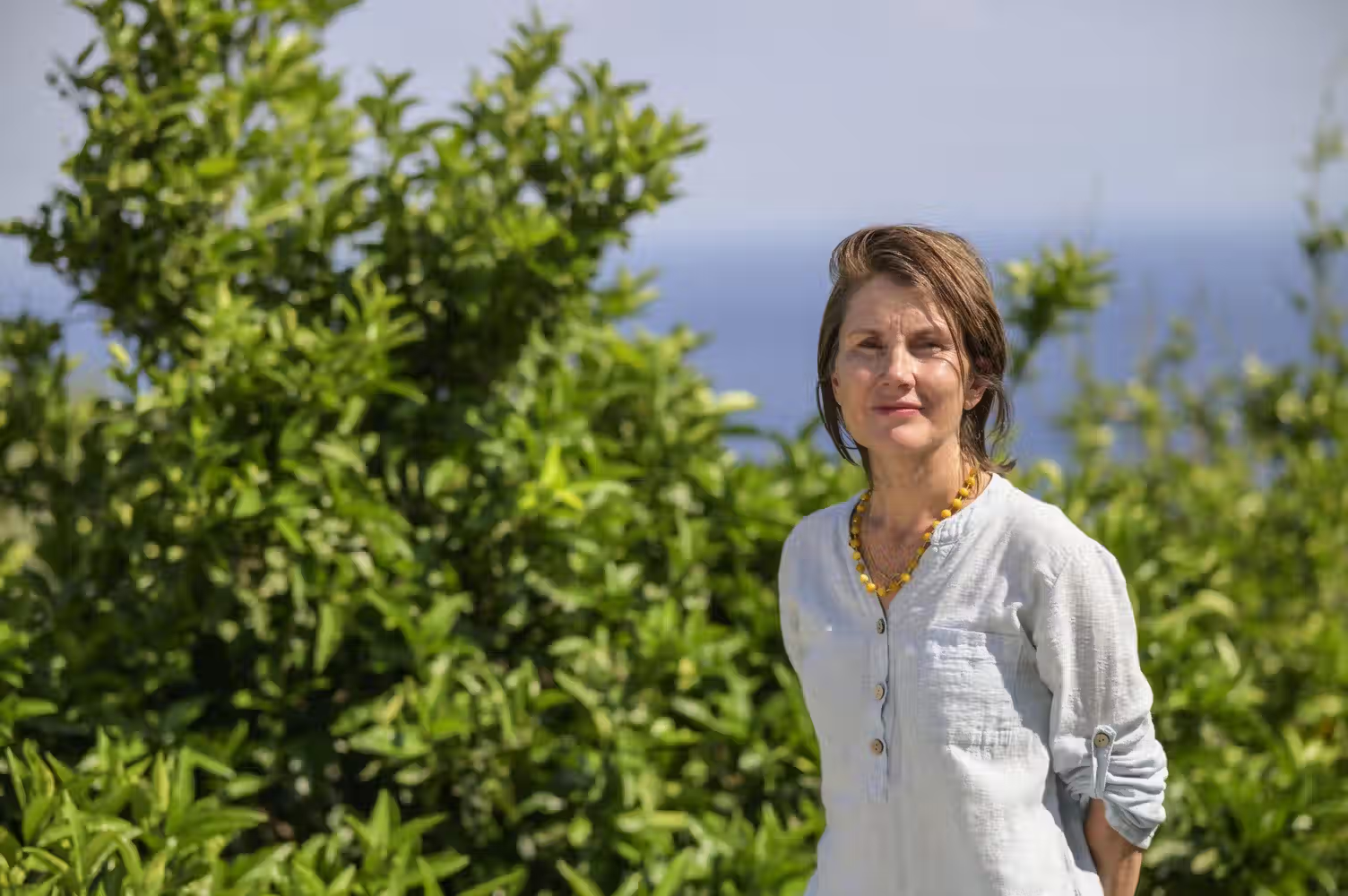In Waar alle wegen ophouden, set to be released at the end of October, Sana Valiulina follows the fourteen-year journey of her father. His path takes him from Western Russia to Brittany and Normandy, then through England and back to his homeland, where he was imprisoned for ten years in the Gulag as a traitor. Who was this mysterious man, so different from other fathers?
Sana Valiulina first gained recognition with her novel Didar en Faroek (2006), which is based on her parents' story. In this book, she intertwines their love story in the Soviet Union with major historical events—the Second World War and Joseph Stalin’s reign of terror.
In 2017, Valiulina won the Jan Hanlo Essay Prize for her collection Winterse buien of Ben ik wel geïntegreerd genoeg? (2016).
Valiulina grew up in Tallinn, Estonia’s capital, where she initially spoke Estonian and Tatar at home. However, since Russian was the language of instruction in Soviet schools, she quickly became fluent in it. At seventeen, she moved to Moscow to study Norwegian language and literature. Before the fall of the Berlin Wall, she moved to Amsterdam in 1989 for love. There, she worked as a translator and taught Russian while also starting to write in Dutch.
Her debut novel, Het kruis (2001), explores life and sexual freedom in a Moscow student dormitory. This was followed by the novella collection Vanuit nergens met liefde (2002). In Honderd jaar gezelligheid (2010), she takes aim at the Amsterdam elite and satirizes the Dutch obsession with "keeping things gezellig". In 2012, under the pseudonym Sofia van der Sluis, she published the thriller Tussenvrouw. Her novel Een wolf bij zijn oren pakken (2020) explores the world and psyche of the Roman Emperor Tiberius, ‘the saddest of all men,’ who had to maintain control over a vast empire as an absolute ruler.




